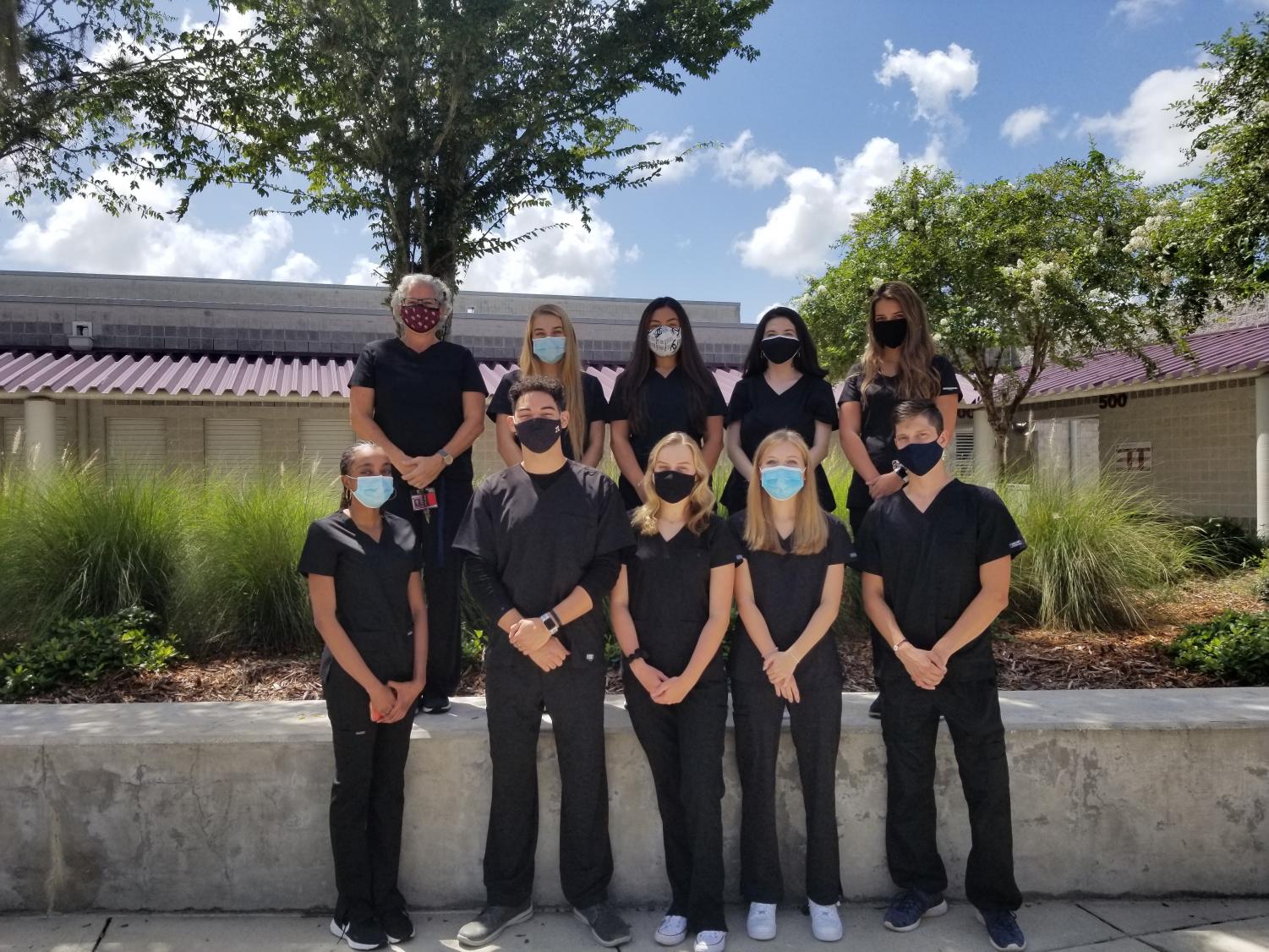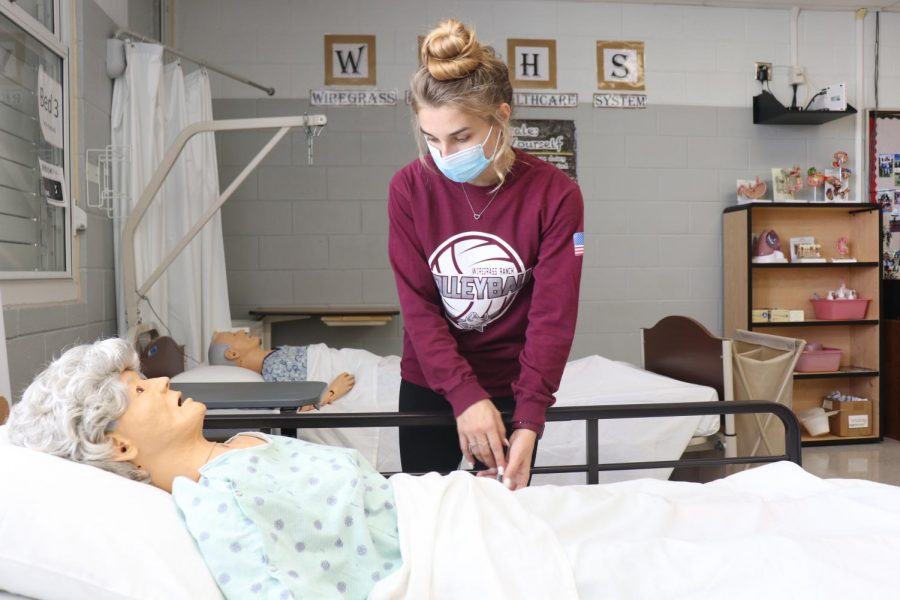Changes to the CNA program due to Covid-19
Senior CNA student, Holly Elfering, practicing her nursing skills on a mannequin.
The CNA program would normally be starting their clinical rotations at the nursing homes this month to earn certification hours, but due to Covid-19, these clinicals have been canceled for 2020.
Prometric, the company that administers the Certified Nursing Assistant test, made significant changes to their certification program this year. In the past, one had to pass a CNA written test, an in-person skills test, and log 40 clinical hours prior to earning a CNA license. This year, candidates only need to pass the written exam to become certified. This has left many wondering if this years’ CNA’s will be ready to join the medical field.
Lisa Fiske, a CNA instructor at Wiregrass Ranch High School, has been a registered nurse for 40 years. She was an infectious disease nurse at Chestnut Hill Hospital for many years prior to teaching.
“In times of great need, medical and nursing programs have been cut short to meet an increased need,” Fiske explained. “During WWII, [they] cut medical school programs to two and a half years, and nursing school to one to get people trained quickly; so, there is precedent for these short-cuts in times of need.”
At Wiregrass, students stimulate the nursing home environment in the classrooms in order to learn the skills, normally progressing to the nursing homes once they have successfully passed their skills, but this year the classroom is the only place they will be able to learn.
“The nursing home showed me how important the role of a CNA was because the patients are very vulnerable and they trust you to aid them in day-to-day tasks,” 2020 CNA program graduate Hannah Taugner said.

Clinicals have always served as a significant learning experience for the CNA students at Wiregrass. Senior CNA student Jesus Lora is worried about losing that opportunity.
“The lack of experience is going to shock us,” Lora stated. “It is so much different in the real-world application compared to the books.”
Although this is a major change for current CNA students, Fiske is hopeful that students will be able to return to clinicals in January.
“While we can do simulations in the classroom, nothing beats a hands-on experience,” Fiske said. “However, this pandemic is a unique learning opportunity; people cannot trivialize a dangerous and unpredictable pathogen such as Covid-19.”
Your donation will support the student journalists of Wiregrass Ranch High School. Your contribution will allow us to purchase equipment and cover our annual website hosting costs.

Isabel is a senior at Wiregrass Ranch and this is her first year writing for The Stampede. She is a member of Key Club and volunteers at AdventHealth....






